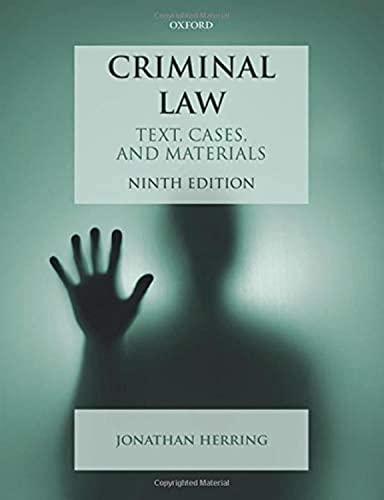Question
1. Privileges tend to limit evidence, even though the evidence is relevant and authentic. Assume that a member of a church congregation sought out his
1. Privileges tend to limit evidence, even though the evidence is relevant and authentic. Assume that a member of a church congregation sought out his pastor to discuss how he could save his soul. The pastor asks for his specific concerns, at which point, the church member told the pastor that he had murdered a child whom he abducted. He then proceeds to tell the pastor of the specifics of the crime.
(a) under these circumstances, do you believe that the clergyman-penitent privilege serves any needs of society?
(b) is there still a need for such a privilege?
(c) Is justice served if the privilege is permitted to exclude the evidence of the admissions that the church member made to the pastor?
(d) Does this fall under a "mandated reporter" statute? (In many parts of the western world, mandated reporters are people who have regular contact with vulnerable people and are therefore legally required to ensure a report is made when abuse is observed or suspected).
Step by Step Solution
There are 3 Steps involved in it
Step: 1

Get Instant Access to Expert-Tailored Solutions
See step-by-step solutions with expert insights and AI powered tools for academic success
Step: 2

Step: 3

Ace Your Homework with AI
Get the answers you need in no time with our AI-driven, step-by-step assistance
Get Started


